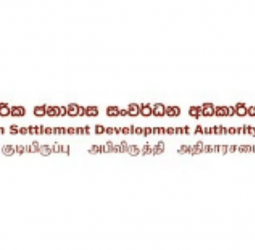- New clearance procedure boosts collections by more than 200%
- Customs denies return to de minimis rule, says all imports taxed under HS codes
- Cabinet decision clarifies appointment of committee, not suspension of rules
- Revenue gain modest against overall 2025 target of Rs. 2.1 t
Following the introduction of its new clearance procedure in respect of imports made through e-commerce platforms, Sri Lanka Customs is forecasting the revenue generated from e-commerce to surge from around Rs. 400 million to around Rs. 1,500 million in 2025.
Speaking to The Sunday Morning Business, Sri Lanka Customs Director General Seevali Arukgoda stated that contrary to speculation, they had not returned to the previously applied de minimis rule and were instead continuing to tax all e-commerce imports under the respective Harmonised System (HS) codes.
He further stated: “We are unaware of any Cabinet decision. We are taxing each product individually. It is happening without any issues and everyone is paying. It is actually performing really well; in fact, the revenue related to this (e-commerce) has increased by more than 200%.”
Arukgoda further revealed that, traditionally, Sri Lanka Customs would generate around Rs. 400 million in taxes from imports made through e-commerce platforms, which was forecast to increase to approximately Rs. 1.5 billion this year.
However, he conceded that this was unlikely to have a major impact on Sri Lanka Customs’ total revenue target for 2025, which stood at Rs. 2.115 trillion.
Speaking to The Sunday Morning Business in late July, Ministry of Trade, Commerce, Food Security, and Co-operative Development Secretary K.A. Vimalenthirarajah claimed that the implementation of the new clearance procedure adopted by Sri Lanka Customs in respect of imports made through e-commerce platforms had been suspended by the Cabinet of Ministers for six months.
“It has been postponed for six months and a committee will be appointed to study this as per the Cabinet decision,” he stated.
However, upon examining the Cabinet of Ministers’ decision dated 14 July, it is evident that the Cabinet had merely proposed the establishment of a committee to recommend transitional operational relief for e-commerce and to introduce a long-term regulatory framework.
The press briefing of the Cabinet decision taken on 14 July provides as follows: “Sri Lanka Customs has recently revised its Customs clearance procedure identifying certain lapses in the Customs clearance procedure followed regarding imports made through e-commerce platforms.
“The delays, increased transaction costs, eroded public trust, and reduced transparency and predictability of prices resulting from its implementation have led to dissatisfaction among users of e-commerce platforms. In particular, individual consumers and small-scale importers who rely heavily on e-commerce have been affected.
“The proposal made by the President in his capacity as the Minister of Finance, Planning, and Economic Development to appoint a committee comprising officials from relevant institutions to provide transitional operational relief for e-commerce and to introduce a long-term regulatory framework in this regard, in view of this situation, was approved by the Cabinet.”
The de minimis principle refers to the exemption of small or low-value import consignments from customs duties, a practice widely recognised and implemented by customs authorities across the globe.



 Natasha
Natasha






